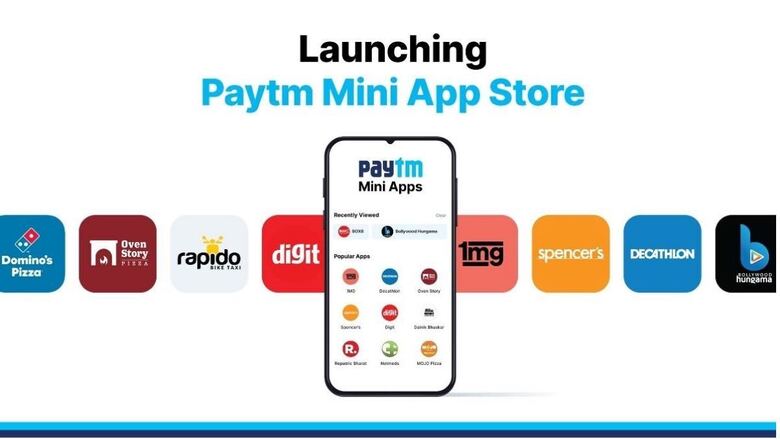Google In India, Tale Of Postponed 30% Cut & Paytm Mini App Store: Delays Don’t Hide Big Fault Lines

views
Google has not really had a nice time of it, off late at least, with Indian app developers. And things have been brewing for a while now. Mostly in the background perhaps, and sometimes on the international stage. But, when India’s leading digital payments platform Paytm stood up to Google last month, things have really started to unfold since. The concerns of Indian app developers are largely around what they believe are unfair policies that Google wants to implement for developers who have an app listed on the Play Store. Be it for advertising, be it for a share of in-app payments. The pushback has helped. Google is postponing the implementation of the new Google Play Billing Policy to April 2022.
Earlier this month, as many as 150 Indian app developers unofficially came together to forge ahead with an idea of an alternate app store, something that will reduce the reliance of Android smartphone users, on the official Google Play Store. At the forefront of this was Paytm, which has actually gone ahead and launched its Paytm Mini App Store this morning. The highlight? No 30% cut on transactions done in-app. The trigger? A new Google Play Billing Policy that dictates a 30% cut from in-app transactions done by users using the Google Play platform. Google’s reaction? The company has delayed the implementation of the 30% commission for Indian app developers till April next year.
“When you take what we earn, you don’t grow together. You grow at our cost. Young co’s seek tax rebates & holidays from governments. And Google takes all this money spent by Indians on other Indian’s apps to offshores. Depriving us of our capital investments, jobs & growth,” says Vijay Shekhar Sharma, founder of Paytm, in a tweet. He has been one of the most vocal opponents of Google’s often opaque polices. Paytm got into a tiff with Google last month when Google removed the Paytm app from the Play Store, just ahead of the start of the IPS 2020 cricket tournament, citing that some of the cashback offers available on the platform amounted to betting. The app was later reinstated, and Paytm had pointed out at the time that Google’s own Google Pay app in India was running similar offers. Google Pay rivals Paytm in the digital payments space.
But is it really new? For all the protests and the anger towards the 30% commission that Google wants to charge for in-app transactions, it isn’t exactly new. Yet there are changes that worry Indian app developers. Google maintains that of all the developers on the app store, less than 3% of developers with apps on Play sold digital goods over the last 12 months. The company also says that of this 3%, as many as 97% of the developers already use Google Play?s billing. This is where the big compliance requirement kicks in, which is causing a furore. Google had said that those developers that need to update their apps to comply with the new Google Play Billing policy, they will have until September 30, 2021 to make those changes to the apps. New apps or updates that are submitted for the Play Store after January 20, 2021 will need to be in compliance. All that now stands delayed.
“We’ve always required developers who distribute their apps on Play to use Google Play’s billing system if they offer in-app purchases of digital goods and pay a service fee from a percentage of the purchase. To be clear, this policy is only applicable to less than 3% of developers with apps on Google Play. We only collect a service fee if the developer charges users to download their app or they sell in-app digital items, and we think that is fair,” Sameer Samat, Vice President, Product Management, had said in an official statement while announcing the policy changes late last month.
It isn’t as simple as it seems. Till now, if an Indian app developer was using an alternate payment method and not Google Play, they will now have to compulsorily use the Google Play platform—and pay Google a 30% commission on every transaction done.
It all started with Google removing the Paytm app from the Google Play Store just before the IPL 2020 cricket tournament started. It turns out Google classified some cashback and scratch card offers that Paytm was offering users ahead of the much-awaited IPL 2020 T20 cricket season, as gambling and sports betting. Paytm had said that the first communication they received from Google stated that the Paytm app was being delisted from the Play Store in India. Incidentally, Google Pay was running its own “Tez Shots” campaign with rewards of up to Rs 1 lakh—and they would earn rewards based on scores for different services they use on Google Pay.
Paytm wasn’t the only app that was in the line of fire. Popular food delivery platforms Zomato and Swiggy also received notices from Google India for possibly violating the Play Store guidelines. These platforms were running similar offers, such as the Zomato Premier League with in-app games and features. Till now, Google has not shared an official statement on why these apps were specifically targeted with the potential infringements around gambling and sports betting.
“Seeds have been sown and with delay you will see an entire forest rise #AtmaNirbharBharat,” writes Vishal Gondal, CEO, GOQii on Twitter, while tagging Paytm’s Vijay Shekhar Sharma.
At this time, the Paytm Mini App Store is off to a good start. On board are Ola, 1mg, Practo, Domino’s Pizza, McDonald’s, Cure.fit, Gaana, Booking.com and Faasos. More Indian app developers can be expected to join in the coming days, all of which further puts pressure on Google in India. This in itself pushes Paytm forward to become a super app, which now includes digital payments, investments, a shopping platform and now even an app store, to name a few.



















Comments
0 comment